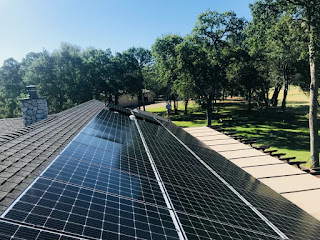Solar rooftops: Everything you need to know before installing solar rooftop system
Millions of homes and commercial buildings have started to adapt to solar rooftops. This is major because of the increasingly changing consumption of power and lack of resources. Residential solar can help generate electric power converted from solar energy and run most of your devices, including AC/other appliances.
Although residential rooftops may be used to
install solar rooftops, you need to consider a couple of factors before
starting the process.
Types of Residential Solar Systems
1. On-grid solar systems
Topping the list is the On-grid systems that are
generally integrated with the main supply of the building. It allows power to
be used directly when one cannot supply power. Thus, a well-planned rooftop
system can efficiently deliver power without using grid supply, saving expenses
otherwise incurred using energy from the grid. This system can earn profits as
any excess power generated can be fed to the grid for which DISCOMs pay
compensation using ‘net metering.’
2. Off-grid Solar Systems
The second on the list is the off-grid solar
system, which has the rooftop solar system not linked to the primary grid. This
system runs on its battery power. The power generated from the rooftop solar
system charges the battery, which is then used to power various applications.
This system is advantageous when the supply is erratic.
3. Hybrid Solar systems
The third one on the list is the hybrid solar
system, which is, of course, self-explanatory. It includes both on-grid and
off-grid systems working in tandem. The advantage here is once the battery is
ultimately charged; the excess power generated may be used to feed the grid,
leading to additional revenues.
Contact our experts to know more about installation solar and residential
solar.
For more information please visit:
https://horizonelectricsolar.com/




Comments
Post a Comment